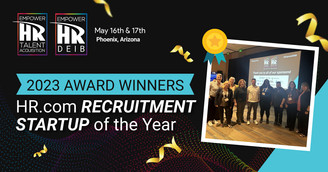The term “Recruiter” sure gets thrown around a lot. In most cases it’s a catch-all for anyone involved in the process of sourcing, attracting, screening and selling working professionals on new job opportunities. Recruiting is Sales. Recruiting is Marketing. Recruiting is a Negotiation. But the decision to change jobs is far greater than the decision to buy a house or lease a new car. Taking a new job is a choice that very much impacts an individual’s career trajectory, their families, and their very well-being. Needless to say, those of us involved with convincing someone to alter 50% of another person’s waking life, shouldn’t take our profession lightly. While the recruiting industry and ecosystem of clients, vendors, technology partners and staffing agencies is vast, it’s important we help inform clients and hiring managers the term “Recruiter” can vary considerably and that this job is complex.
When researching the current state of talent acquisition, it’s common to find blogs and articles about trends, tips or best practices around the recruiting function. It’s great that practitioners, industry leaders and analysts are willing to share their ideas, but I’ve found that what works and what doesn’t work, varies dramatically depending on the specific company you’re representing or the specific job requirement at hand.
The most straightforward distinction among Recruiters are those that are working in-house for a single organization, also known as Corporate Recruiters and those who work for external staffing agencies (aka Headhunters). In both scenarios, Recruiters are working on filling open jobs with qualified people, or “butts in seats”, but the nature of these two roles is quite different.
Agency work is intense. A Recruiter’s day-to-day consists of working ‘the bullpen’, cranking out hundreds of cold calls per day, dialing for dollars. They’re either hustling to get legitimate job requisitions (reqs) from attractive clients or racing to find that needle in the haystack, to make a placement and get paid. While agency recruiting is quite lucrative, it’s a ‘eat what you kill’ mentality and not for the faint of heart, similar to the competitive and cut throat nature of many other industries ‘agency’ environments. Building relationships and trust with both clients and candidates is one of the most important aspects of agency recruiting. “Time” on the other hand, is a staffing firm’s kryptonite. Too much time required to find, screen and send candidates to clients (internal Recruiters or hiring managers) and agency Recruiters will starve.
There are high-margin (retained & executive search agencies) and low-margin (high-volume) temp agencies and everyone in between. There are boutique staffing firms and multi-billion dollar, publicly traded agencies with an international footprint. As such, there’s no one-size-fits-all strategy for an agency or for an individual agency Recruiter in the trenches. It’s up to the Recruiter to find the tools and ‘hone’ the techniques to differentiate themselves from the competition and accelerate the candidate process to make themselves, and the firm, successful.
Corporate Recruiting has another set of stressful challenges. In this sense, Recruiters are working with internal client groups and tasked with filtering the talent that’s best suited for a range of departments across the organization. Unlike agency recruiting, you can’t choose the reqs you work on. All jobs must be filled, and each day they remain unfilled, someone at the company is carrying the extra load and becoming more frustrated that it’s still open – usually this is the hiring manager themselves. What complicates things further is that every Hiring Manager you’re working with thinks their open job is the top priority for the company, and there’s traditionally no one else that’s going to tell them it’s not, not even their own manager.
Internal Recruiters are responsible for allocating their time to service 20, 30, 40 open reqs with 5, 10, 15+ unique hiring managers who are essentially internal clients. Building relationships here is also key to understanding the needs of the business and thus finding and filtering the right talent to fill open jobs. Once again, it’s ‘time’ that also haunts internal recruiters. Too many reqs, too many screens, not enough qualified candidates, and over-worked and over-stressed hiring managers fearful of losing their open headcount all chew through your day. Corporate Recruiters are constantly juggling Time versus Cost versus Quality with every requisition to find the best person at the time for the money. Throw in ‘culture fit’ and personality (both very subjective and time intense to asses) and the company better have free snacks or your Recruiter may soon become violent, now that big commissions are not part of the compensation plan.
I’ll never forget the ‘Aha!’ moment after transitioning from staffing agencies, to an in-house recruiting role at MTV Networks in Times Square, New York City, where I learned first hand the difference between external and in-house recruiting. For years it was my job to get candidates to accept the offer on the table from our clients. Ultimately I was working for the client, for it was the client who paid us our placement fee, not that candidate (a common misnomer in headhunting). If my candidate didn’t accept the offer, we didn’t get paid, and we were back to the drawing board. Getting to ‘Yes’ was as critical to the agency recruiting business as any sales role.
However, moving in-house, you quickly find out that making the wrong hire can do much more damage than an empty desk. The time and cost of everyone involved to on-board, train, and get a new hire up and running is astonishing and the worse thing you can do is convince someone to take a job that isn’t the right fit for the employee or for the company. As a corporate Recruiter, there are hundreds of variables when matching candidates to requisitions, hiring managers and the teams they’ll be working with. Identifying potential red flags among a candidate’s ordinary yellow flags, and preventing a bad hire can be one of the most productive things a Recruiter can do. This is probably not going to win favors in the short-term, but will help the company in the long run and prevent a single bad hire from derailing the productivity of the incumbent team, or contributing to more bad hires. This is a great example of why the recruiting function is often misperceived and why misinterpretation and miscommunication occurs frequently between recruiters and hiring managers.
Flipping the switch and learning to speak up and say ‘No’ to a hire was an unexpected lesson and fundamental to a successful transition to in-house recruiting.
We built The Honeit.com Platform to embrace the Recruiters in the trenches and give them the infrastructure and support to build confidence with clients and hiring managers and to accelerate the hiring process. For the first time ever, Recruiters can phone screen and asses talent as they normally do, but finally let candidates ‘speak for themselves’ to relieve the pressure. Honeit improves communication between Recruiters and hiring manager, removes redundant steps of the job interview process and saves everyone involved – time, money and frustration. Get Started for Free at www.honeit.com




